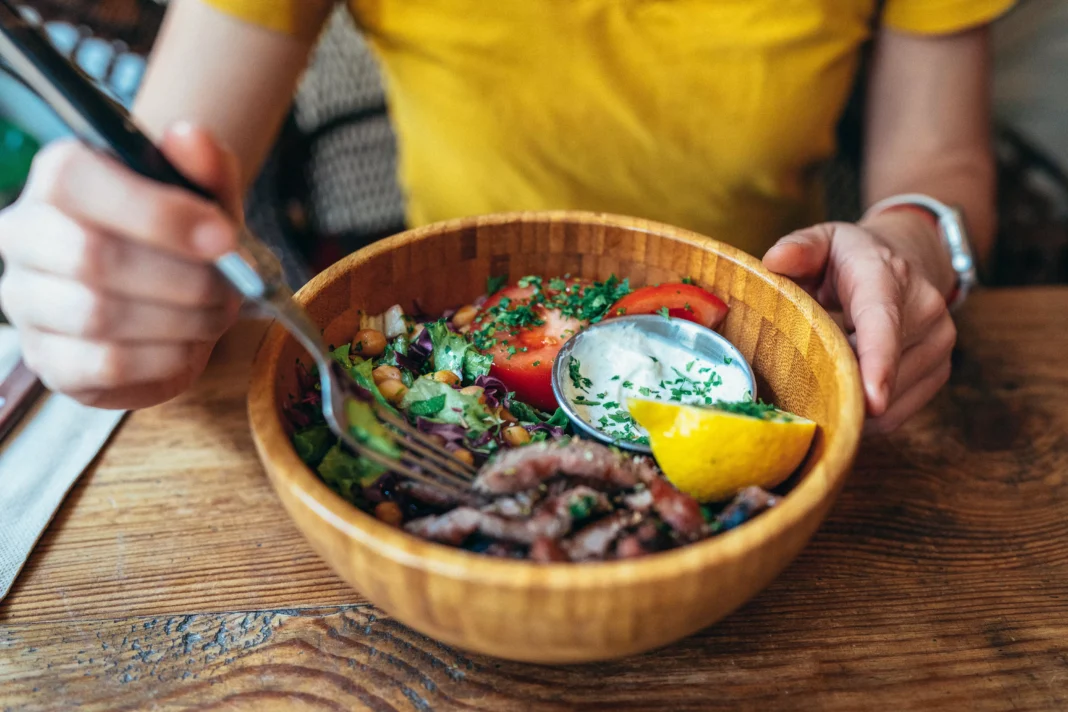Cooking is a passion for many, including myself. However, for those with Dyspraxia, a disability that impacts several areas of life, following a recipe can be a daunting task. This is a common struggle for Dyspraxic individuals, as following instructions is one of the key difficulties we face.
But despite this challenge, I refuse to let my disability stop me from pursuing my love for cooking. I enjoy experimenting with different textures and flavors, and for me, a Sunday spent in the kitchen is a Sunday well-spent. However, it also means accepting that I may not be able to make foods exactly the way they are ‘supposed’ to be made.
Imagine my joy when I came across Katerina Pavlakis, also known as The Intuitive Cook, who learned how to cook by not following recipes. Not only that, but her approach to cooking is also environmentally friendly and sustainable. We love to see it.
I had the opportunity to speak with Katerina Pavlakis, and she shared her approach to intuitive cooking and how others can start incorporating it into their cooking routine.
Pavlakis herself started cooking intuitively because she also struggled to follow recipes. She explained, “Personally, I think I mostly struggle with recipes because my brain needs to understand why I’m doing something before I do it. I don’t quite trust just ‘being told’ (and recipes rarely explain). This didn’t put me off cooking, but it made me feel like I was a bad cook, totally overlooking the fact that everybody always really liked the meals I cooked (but I was under the impression that ‘proper cooking’ must be about following the recipes).”
It’s true that getting caught up in the recipe when cooking can become a bit overwhelming and make the whole experience more stressful than it needs to be. Pavlakis shared that this is a common struggle among her customers in her shop and at her workshops. She said, “Common recipe struggles are either because the instructions seem confusing, or because the instructions don’t fit real life (it takes too much time, there is always some ingredient missing, or something you (or your family) can’t eat or don’t like to eat).”
So, how does one get started with intuitive cooking? Pavlakis believes that cooking can be boiled down to two principles: building a meal (choosing ingredients) and building flavor (making them taste good). She explained that both of these principles are based on a pattern of layers. “If you look closely, the vast majority of recipes are built in such layers (that’s why most recipes start with ‘chop an onion’). Once you understand the layers, you can safely simplify/experiment/improvise with ingredients within those layers. You don’t need to know a list of ‘what goes with what,’ or understand molecular chemistry. Common sense and your taste buds are all you need to guide you.”
One may wonder if there are any specific pantry staples needed for intuitive cooking. Pavlakis shared, “My pantry has two kinds of staples: ‘basics’ (the obvious ‘shelf-stable’ things like onions, tinned tomato, tinned beans/chickpeas, packets of lentils, rice, pasta, tinned fish, eggs, etc.) and ‘flavor bombs’ (ingredients that pack a punch of flavor, e.g., olives, parmesan, tomato paste, feta cheese, soy sauce, anchovies, herbs & spices, and pomegranate molasses).” She explained that with a few basics, a few flavor bombs, and fresh ingredients, one can make a tasty meal at the drop of a hat.
Ultimately, cooking is not supposed to be scary. While it may be intimidating to throw away the recipe books and follow your instincts, Pavlakis assures that it’s easier than you think. She said, “It takes a little practice to ‘unlearn’ the fear of ‘doing it wrong’ and to learn to trust yourself with what you think will taste good, but it works because we all have an instinct for what’s good to eat. As the wonderful food writer Tamar Adler says, ‘You don’t need to know what it’s supposed to taste like: what anything is supposed to taste like, at any point in its cooking, is good.’”
Not only is intuitive cooking a great way to simplify the cooking process, but it is also good for the



